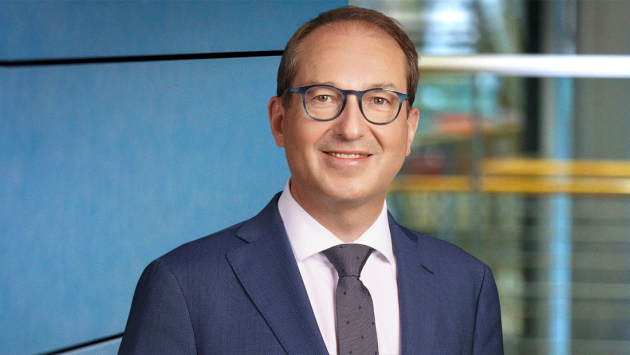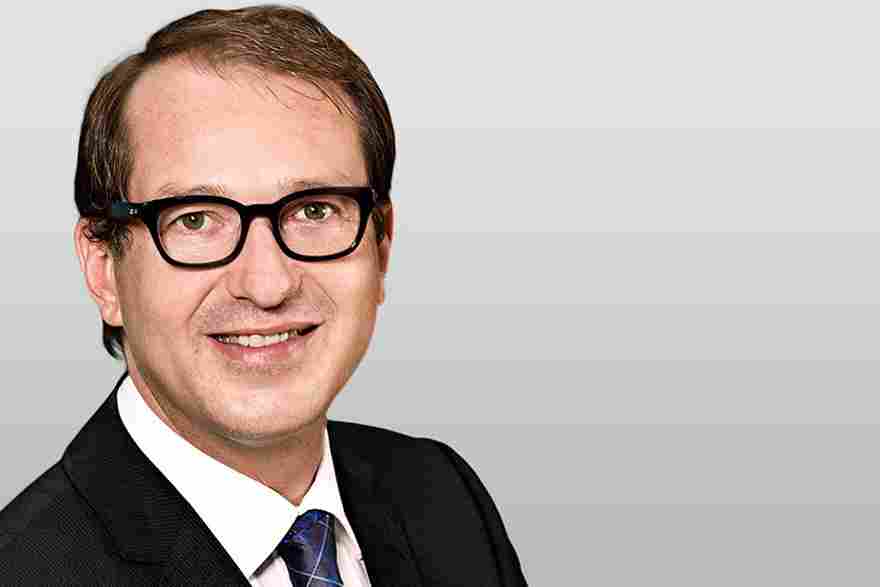Alexander Dobrindt was born on June 7, 1970, in Peißenberg, Bavaria, Germany. He spent his childhood in the Bavarian countryside, where he developed a strong sense of community and leadership. He completed his high school education in Weilheim in 1989, showing an early interest in politics and governance. His academic journey led him to Ludwig Maximilian University of Munich, where he studied sociology and graduated with a Master of Arts degree in 1995. His time at the university exposed him to political and social theories that later shaped his approach to governance. After graduation, he worked in the private sector, gaining valuable financial and administrative experience before stepping into full-time politics.
Political Career and Rise in the CSU

Alexander Dobrindt’s political career began in 1986 when he joined the Junge Union, the youth wing of the Christian Social Union (CSU). His dedication and leadership skills quickly earned him recognition, and by 1990, he became a full-fledged member of the CSU. His political breakthrough came in 2002, when he was elected to the German Bundestag, representing the Weilheim constituency. His election victory was decisive, securing over 59.4% of the votes, a testament to his popularity and strong voter base.
Between 2005 and 2008, he served as the economic policy spokesperson for the CSU parliamentary group, focusing on business, trade, and economic reforms. In 2008, he was appointed Chairman of the CDU/CSU parliamentary group’s Education and Research Working Group, further cementing his influence within the party. His political momentum continued to grow, and in 2009, he was named the General Secretary of the CSU, a position he held under the leadership of then-party chairman Horst Seehofer.
Following the 2013 federal elections, Dobrindt was appointed Federal Minister of Transport and Digital Infrastructure, a role that placed him at the center of Germany’s transportation and digital transformation initiatives. One of his most controversial and ambitious policies was the introduction of a road toll system, requiring foreign drivers to pay an annual fee for using Germany’s Autobahn motorways. The initiative, aimed at generating additional revenue for infrastructure development, faced legal and political challenges but underscored his commitment to advancing the country’s transportation network.
Under his leadership, Germany witnessed an unprecedented 270 billion euro investment plan, dedicated to improving roads, railway networks, and digital infrastructure. His tenure, which lasted until 2017, was marked by both progress and controversy, as he navigated complex legislative and logistical challenges.
In 2017, following the federal elections, he transitioned into a new role as Chairman of the CSU parliamentary group in the Bundestag, succeeding Gerda Hasselfeldt. In this capacity, he also became the First Deputy Leader of the CDU/CSU group, working alongside CDU chairman Friedrich Merz.
Latest News About Alexander Dobrindt

As of 2025, Alexander Dobrindt continues to be a key figure in German politics. Recently, he has been actively involved in Germany’s digital infrastructure reforms, advocating for an accelerated rollout of 5G networks to keep the country competitive in the global economy. He has also been vocal about improving rural connectivity, ensuring that even the most remote regions of Germany benefit from high-speed internet access. His efforts have sparked debates in the Bundestag, with critics questioning the feasibility and funding of these ambitious projects. However, Dobrindt remains steadfast in his vision, emphasizing the need for technological advancements to support Germany’s economic growth.
Height and Physical Appearance
Alexander Dobrindt has a medium build, with brown hair and a distinguished look that reflects his extensive political career. He is often seen wearing formal suits, maintaining a professional and authoritative appearance. He wears glasses, which have become a signature part of his public image. Although his exact height is not publicly available, he appears to be of average height when standing alongside other German politicians.
Net Worth as of 2025
As a long-serving German politician, Alexander Dobrindt’s net worth is primarily derived from his government salary and political earnings. His wealth is regulated by government salary structures, as he has not been publicly linked to private business ventures or significant financial investments. While his exact net worth remains undisclosed, estimates suggest that he earns a comfortable income, consistent with that of high-ranking Bundestag members. Unlike many politicians with substantial business investments, Dobrindt’s financial profile is more focused on public service and governance rather than private wealth accumulation.
Detailed Biography Table
| Attribute | Details |
|---|---|
| Full Name | Alexander Dobrindt |
| Date of Birth | June 7, 1970 |
| Place of Birth | Peißenberg, Bavaria, Germany |
| Education | Master of Arts in Sociology, Ludwig Maximilian University of Munich |
| Parents’ Names | Not publicly disclosed |



